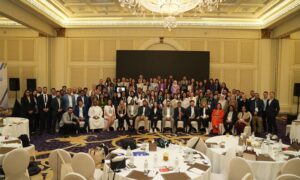Have you heard of the war on Human Resources? HR departments have been under fire from employees everywhere for seemingly being the frontman for companies. While being the face of bad news for layoffs and disciplinary actions, employees have voiced concerns over a loss of trust in HR and their ability to reflect unbiased collaboration between employees and their employers.
The war on Human Resources reflects a growing discontent among employees who perceive HR as merely an extension of corporate management, prioritizing company interests over the welfare of the workforce. This skepticism is often fueled by HR’s dual role: as both the advocate for employee concerns and the enforcer of company policies, including layoffs and disciplinary actions. When HR appears to consistently side with management, particularly in conflict situations, it can lead to a significant erosion of trust. Employees may begin to see HR not as a confidential mediator or a support system, but as a gatekeeper for the company’s agenda. This perception undermines the foundational purpose of HR departments—to serve as a bridge between staff and management, ensuring fair treatment and fostering a positive work environment.
To address these concerns, HR departments need to actively work on rebuilding trust and demonstrating their commitment to employee interests. This might involve more transparent communication practices, where decisions are not only relayed by HR but also explained in a context that shows an understanding and consideration of employee feedback. Furthermore, HR can strengthen its position by advocating for policies that directly benefit employees, such as improved work conditions, better training programs, and more effective conflict resolution mechanisms. By taking visible actions that clearly align with the interests of the workforce, HR can start to regain its role as a trusted advocate rather than being viewed as the corporate watchdog. Such steps are crucial for HR departments to fulfill their intended role and help foster a culture of mutual respect and collaboration within companies.
The fact of the matter is that there has been a loss of trust between employees and their employers, and outdated HR practices are standing in the way of unity and communication. Many HR professionals wish to engage in this collaboration, as they are employees as well, but lack the tools to do so.
Executives want to foster a new era of communication, but are unsure of where to start. At the forefront of this revolution stands Sarah M. Worthy, the CEO of DoorSpace, who is voicing the need for a paradigm shift in the way we foster communication between companies and people.
“The HR profession is having an identity crisis. On the one hand, the human resource department has traditionally been responsible for ensuring the organization was protected and compliant with all employee related policies. In recent years, there has been a growing segment of the HR profession seeking to rebrand the HR department as the “People” department and center their work less around compliance and more on supporting employees and culture. The first step HR executives need to take to solve this identity crisis is to re-imagine their own workflows and strategies to center around the employee experience instead of a list of compliance check boxes. This will require an investment in new technologies and training for HR leaders who have been slow to let go of outdated HR practices.”
In light of these developments, the need for HR departments to evolve and adapt to the changing landscape of the workplace is more pressing than ever. This evolution requires a deliberate shift from traditional practices towards more dynamic, people-centric approaches. By embracing new technologies and rethinking workflows to focus primarily on enhancing the employee experience, HR can significantly improve its relationship with the workforce. Investing in tools that facilitate better communication and foster a more inclusive culture will not only mend the fractured trust but also empower HR to act truly in the best interests of both employees and the organization.



































